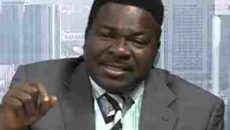By AMINA SALIHU
FIDA, the International Federation of Women Lawyers, now 50 years old in Nigeria, recently held gala and reflection sessions under the theme, 50 Years of Investing in Women and Children. One of the sessions, to which I belonged, was on the status of women in Nigeria. The panel examined the progress so far made in the country in this direction, making projections for the future. While this piece may well celebrate FIDA, it also seeks to share a few reflections on the issues thrown up by the conference.
We all agreed that FIDA represents the power of possibility, that contrary to the divide-and-rule tactics directed at them, women can and do work together and that it will take women, strategically applying their numbers to issues, to drive the change we want to see. No country, positively, is going anywhere without harnessing and maximising the strength of its women. FIDA needs to strengthen its judicial advocacy, speaking out for the poor and testing new laws. Women must help other women, especially across generations, so that a critical mass can be built. Mentoring, therefore, must be a deliberate act with clear systems and processes. FIDA members have to participate in partisan politics. FIDA, with its intellectual content and awareness, must lead the change in narrative from women ‘can’t’, to women ‘can’ and ‘do’.
The judiciary in Nigeria is setting gender-based precedents that can transform the lives of women. The courts overturned on grounds of being inimical to natural justice the Ili Ekpe custom of the Akwa people which enthroned the belief that a woman who had no male child with a late spouse cannot inherit the property of that same man, the very man with whom she struggled to make the wealth. This legal position has a good import for the rights of women as full political and economic beings in Nigeria. So I found it hard to understand why the same judiciary which is opening up such fantastic space for the womenfolk would deny young Muslim women the right to wear the hijab. By the hijab, I do not mean the headscarf which I see some lawyers and benchers wear. I mean a piece of clothing that covers your ears and your neck.
If ours is a society that has problems adjusting to the social roles of women and we have a judiciary that is keen on expanding the space for women, that singular decision to enable young women in law school or practising women lawyers have the choice of the use of the hijab will be a fundamental shift that can enable more girls receive legal education in Nigeria. The operative key word for me is choice. There could be Muslims who are comfortable with the scarf or none at all and that is fine. Therefore, where there are those who want to wear the hijab, they should be given that liberty. This is at once a political right and a collective right to identity.
I must confess that I never thought that the hijab was an issue in the legal profession in some schools in Nigeria until it was brought to my attention during a roundtable with Muslim youths in Lagos recently. In Northern Nigeria, it has since become a non-issue. Wearing the hijab is considered a key to opening doors for girls so much so that both public and private schools allow it. The medical profession has its own version; all professions do. It is my belief that so long as the dress does not interfere with the delivery of services and it is within the modicum of professionalism, it becomes irrational to deny its use.
I was shocked to hear that a commissioner in Lagos State had said parents who want their children to wear the hijab should go to Islamic schools. That is sad because education and the choice of location are rights. Some of us went to missionary schools not because our parents wanted us evangelised but because they wanted the best of education for us. And in those mission schools, Muslim students are given time to say their prayers the Islamic way. In our schools, the Christian religious knowledge and Islamic religious knowledge are both taught. So why should a public servant slip and so miss the point?
Identity is not something you wear and remove on the sly or based on a whim. Therefore, the idea that children should wear a hijab to the school gate and then remove it is not a compromise; it is a problem. You do not drop your name simply because you are going into a mall, a restaurant, or to see the doctor. No, it is part of who you are and you have the right to it. So why drop your identity at the school gate? Socialisation continues within the confines of school, because it is the sum total of who we are. We owe it as a duty to keep that which is good in our culture, and to recognise that we must choose our battles carefully so the war is not lost.
Nigeria is not a secular state much as we may deceive ourselves some times that it is. It is in fact a multi-religious state: Why does the second stanza of our national anthem begin with “O God of creation, direct our noble cause”? It is called the national prayer.
How different, by the way, is the hijab from the beret that children wear to school? Technically, they are both hair covers. When the world has moved on, we are held back by petty things with which we inadvertently strengthen the hands of fundamentalists who do not want girls and women emancipated. For lack of clear foresight, we throw away with the left hand what we strive to build with the right.
I challenged FIDA at its 50th anniversary as I do now to examine this issue of the hijab in our legal practice and I pose the same challenge to the NBA and Nigerian Judicial Council and all legal bodies in Nigeria. It is a human right lacuna that must be resolved.
Follow Us on Social Media



 WhatsApp us
WhatsApp us